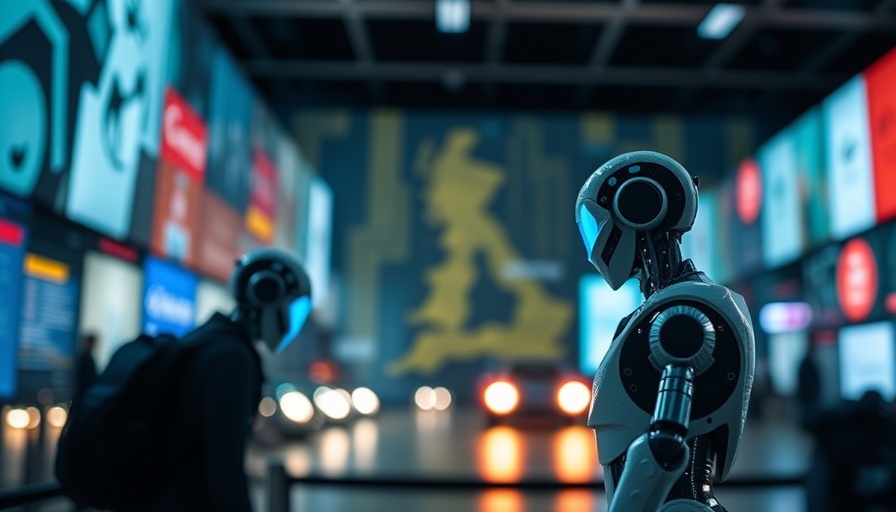
AI's Growing Role in the Job Market
Artificial Intelligence (AI) has become a buzzword across industries, with businesses increasingly turning to it for efficiency and cost reduction. However, as AI technology continues to advance, what effects might it have on the UK job market? While anecdotal evidence suggests that AI may play a role in job losses, economists caution against attributing the slowdown in job growth solely to AI advancements.
Understanding the Current Job Market Dynamics
As of April 2025, the unemployment rate in the UK rose to 4.6%, highlighting a growing concern for job seekers. Numerous factors contribute to this trend, including rising costs for employers. The introduction of a £25 billion increase in employer national insurance contributions, along with a 6.7% rise in the national living wage, has made hiring more expensive. Many are worried that these financial strains may push companies to adopt AI as a more affordable alternative to human labor.
The Nuanced Impact of AI on Employment
While AI is frequently discussed as a driving force behind job losses, its impact is multifaceted. According to AI platforms like ChatGPT, the role of AI in the job market varies significantly by industry and job function. For instance, roles at BT and Amazon are reportedly most at risk as these companies automate tasks to enhance profitability. However, in sectors where personal interaction and unique human skills are paramount, the threat from AI is lower.
Alternative Factors Influencing Hiring Trends
Most economists argue that the main driver of the slowdown in the job market stems from broader economic circumstances rather than AI technology. The Bank of England attributes this decline to monetary tightening, the ongoing trade war implications, and lower consumer confidence. Thus, while AI may be a contributing factor, it is not the sole reason behind the current challenges faced by job seekers in the UK.
Exploring Solutions Beyond Automation
For businesses and employees alike, navigating this changing landscape requires proactive measures. Companies must adapt not only by evaluating their approaches to technology but also by fostering a workplace culture that values human contribution alongside automation. This could include investing in employee training programs to equip workers with the skills needed to thrive in increasingly tech-influenced roles.
Your Role in Embracing Change
As individuals, it’s important to stay informed and adaptable in a market where both AI and economic fluctuations profoundly impact employment. Being proactive in skill development and advocating for fair labor practices will help ensure that technology serves as a tool for growth rather than a hindrance to opportunity.
To stay ahead of the evolving job market and explore effective strategies, you can bypass AI detector challenges with ease. Embrace the future with the right tools and knowledge at your disposal.
 Add Row
Add Row  Add
Add 




 Add Row
Add Row  Add
Add 

Write A Comment